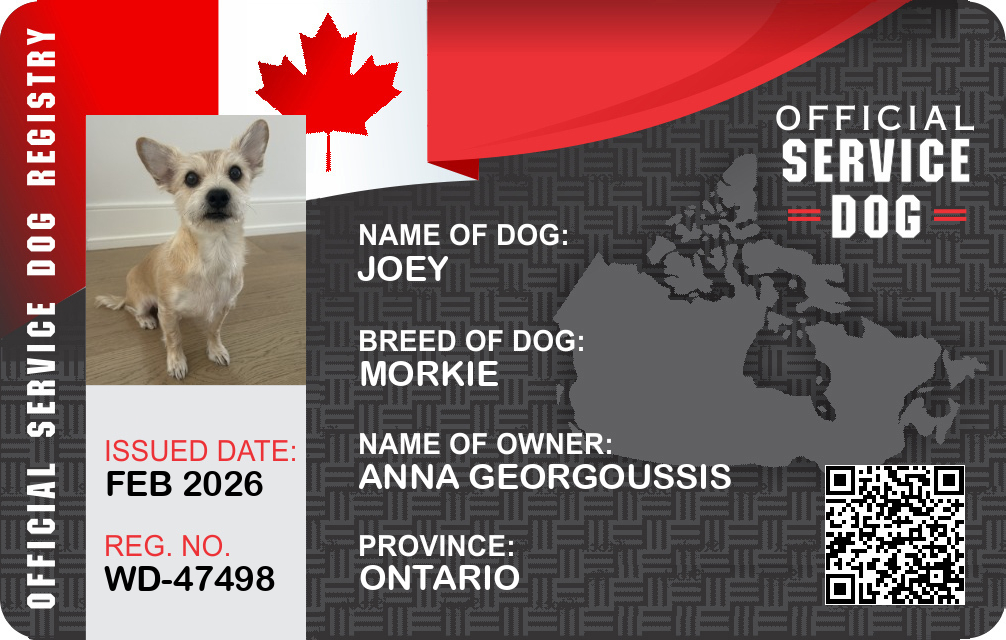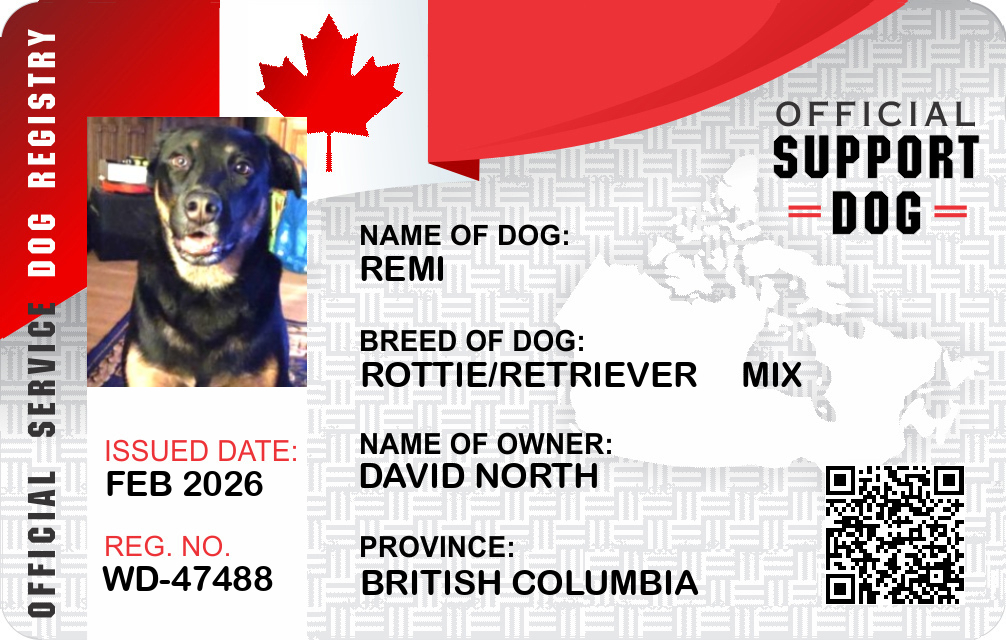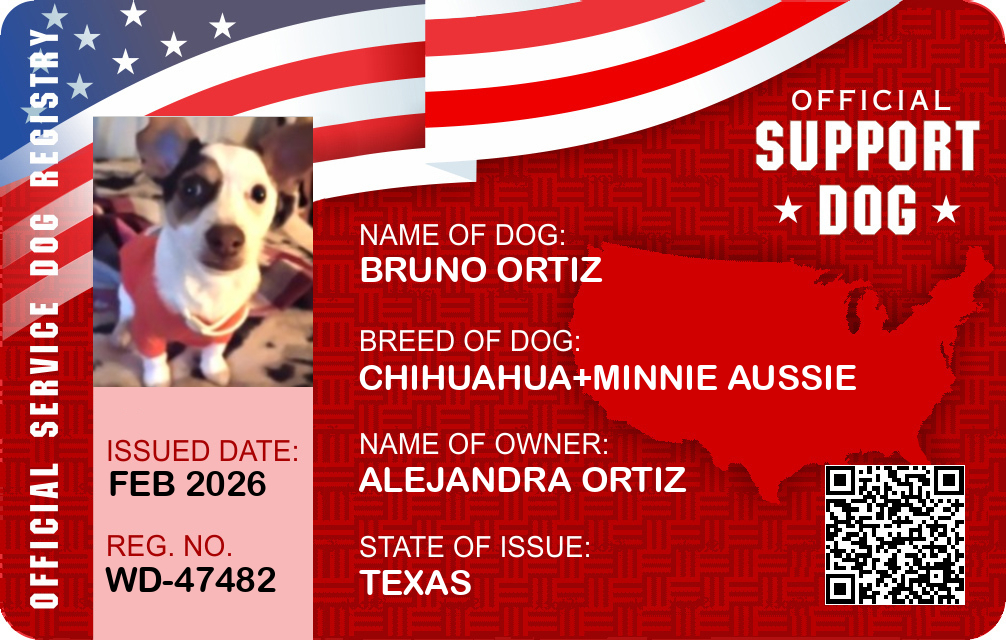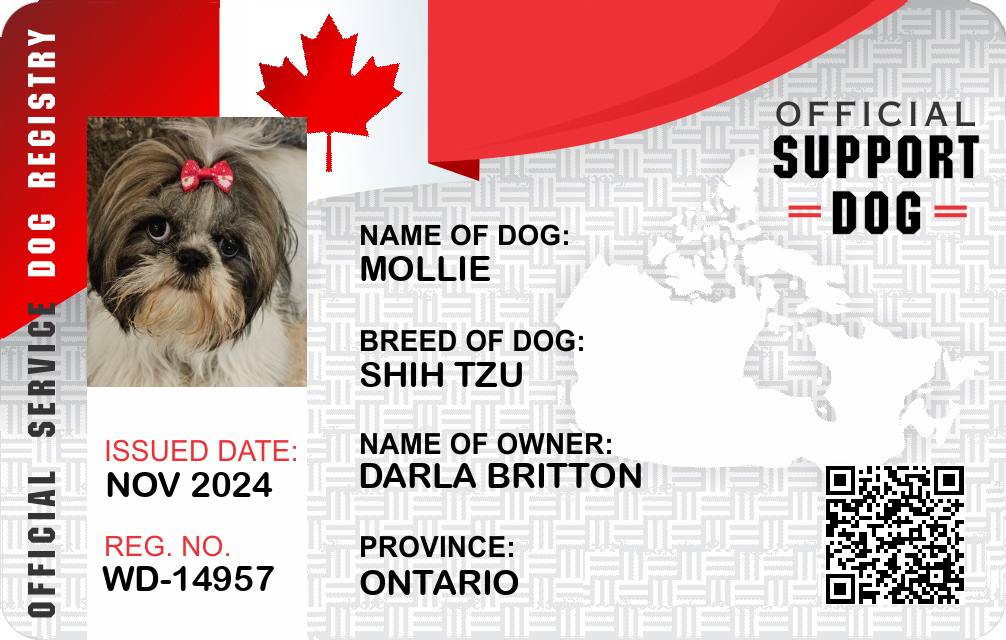Utah Emotional Support Animal Laws
Get Your Documents
Example State Cards


Overview of ESA and Legal Definitions in Utah
What is an Emotional Support Animal?
An Emotional Support Animal (ESA) is an animal that provides comfort and support in the form of companionship for an individual suffering from a psychological or emotional condition. It’s important to understand Utah Emotional Support Animal Laws, as they outline the rights and requirements for ESAs in the state. Unlike service animals, ESA do not require specific task training and can be a wide variety of species, although dogs and cats are the most common. The primary role of an ESA is to alleviate symptoms of emotional distress, such as anxiety or depression.
How ESA Differ from Service Animals
Service animals are trained to perform specific tasks for individuals with disabilities, such as guiding the visually impaired or alerting a deaf person. Unlike ESA, service animals, particularly dogs, are recognized under the Americans with Disabilities Act (ADA), granting them access to public spaces where animals are typically not allowed. In contrast, ESA are not given the same public access rights and are primarily covered under housing laws.
Key Federal Laws Affecting ESA (e.g., FHA, ACAA)
Federal laws provide certain protections for ESA, specifically focusing on housing and, previously, air travel.
- Fair Housing Act (FHA): Under the FHA, ESA are considered a reasonable accommodation for individuals with disabilities. This means landlords must allow tenants to keep an ESA despite a no-pet policy, provided the ESA does not impose an undue financial or administrative burden or fundamentally alter the nature of the housing provider’s services.
- Air Carrier Access Act (ACAA): Previously, the ACAA allowed ESA to travel with their owners in the cabin without additional fees. However, recent updates to the ACAA in 2020 now align with ADA definitions, recognizing only trained service dogs for air travel accommodations, effectively limiting ESA access.
State-Specific ESA Laws in Utah
Housing Rights and Responsibilities
Under the Fair Housing Act, as applied in Utah, residents with an ESA are entitled to reasonable accommodations in housing. This implies:
- No-Pet Policies: Landlords must make exceptions to their no-pet policies or pet fee structures for documented ESA, provided the animal does not pose a direct threat to the health and safety of others or cause substantial property damage.
- Documentation: Tenants may be required to provide a letter from a licensed mental health professional, detailing the necessity of the ESA for alleviating symptoms of a disability.
Public Access and Accommodation
Utah does not grant public access rights to ESA in the same manner as service animals. This means:
- Public Places: Restaurants, stores, and public buildings are not required to allow ESA.
- Limited Exceptions: Some businesses may opt to voluntarily allow ESA, but this is at their discretion and not legally mandated.
Transportation and Travel Rules
Following federal changes to the ACAA, airlines operating out of Utah are no longer required to accommodate ESA. However:
- Private Companies: Some transport services, such as buses or local trains, may have differing policies. It’s wise to check individual company rules.
Employment and Workplace Considerations
The presence of ESA in the workplace depends largely upon employer discretion. While the ADA requires reasonable accommodations for service animals, ESA do not enjoy similar protections. Employees wishing to bring an ESA into the workplace should:
- Negotiate: Discuss needs with the employer, backed by proper documentation, but realize accommodation isn’t guaranteed.
Documentation, Requirements, and Processes in Utah
ESA Letters and Who Can Issue Them
For an ESA to be legally recognized in Utah, appropriate documentation is essential. An ESA letter must be issued by a licensed mental health professional, which may include:
- Psychologists
- Psychiatrists
- Licensed clinical social workers
- Licensed therapists
The letter must state that the individual has been diagnosed with a mental health condition and that the ESA is necessary for their mental well-being.
Landlord, Business, and Provider Verification Rules
Landlords and providers can request verification through an ESA letter but:
- Qualification Identification: May not probe into medical conditions or request extensive medical records.
- Essential Documentation: Only the written verification from a healthcare provider stating the requirement for an ESA is needed.
Rights, Limitations, and Legal Risks
Rights ESA Owners Have in Utah
- Residential Access: Right to live with an ESA in housing, overriding typical pet restrictions.
- Non-Discrimination: Protection from discriminatory eviction or penalty fees related to having an ESA.
Limits on ESA Protections and Common Restrictions
- Public Access Limitation: Unlike service animals, ESA do not have federal or Utah state-backed access to public spaces.
- No Guaranteed Transport Access: Air travels no longer require airlines to accept ESA, and other travel modalities may have restrictions.
Penalties for Fraud or Misrepresentation
Misrepresenting a pet as a service animal when it is merely an ESA can result in:
- Fines and Legal Consequences: Anyone found committing such acts in Utah could face penalties including fines and, in some cases, other legal repercussions.
Practical Guidance for ESA Owners in Utah
How to Qualify for an ESA Legitimately
- Consult Healthcare: Start a discussion with a qualified mental health professional to determine if an ESA is right for you.
- Secure a Legitimate Letter: Obtain an ESA letter from a licensed mental health professional.
How to Talk to Landlords, Airlines, and Employers
- Proactive Approach: Engage in open communication and present documentation upfront.
- Focus on Needs: Make clear the necessity of an ESA for mental health benefits, emphasizing your rights where applicable.
Summary of ESA Laws in Utah
- Rights: Live with an ESA in housing, obtain legitimate documentation for ESA necessity.
- Limitations: No public access rights as with service animals, limited travel accommodations.
- Risks: Legal consequences for misrepresentation or relying on non-legitimate documentation.
In summary, ESA laws in Utah reflect the balance between providing individuals with mental health support while maintaining public safety and property rights. Proper documentation and understanding of both federal and state regulations are critical for ESA owners to ensure compliance and avoid confronting legal issues.
Get Your Documents
Example State Cards













